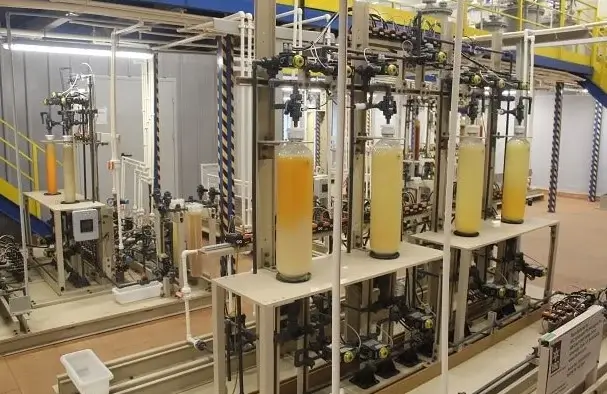Precious metal refining (DM) is a process of cleaning metal from impurities to the required degree of purity by hydrometallurgical and pyrometallurgical methods.
Yekaterinburg Non-Ferrous Metals Processing Plant is the founder of platinum group metals (PGM) refining in Russia and emerged precisely as a refining enterprise back in 1916.
The plant is more than a hundred has been refining precious metals for years, developing the necessary competencies, developing and putting into practice new technologies and know-how, using production equipment from reliable manufacturers, as well as those developed independently.
Today, the range of products and services of the plant is much wider, but refining is still an important part of the manufacturing process. Offering customers a full range of services for the processing of precious metals from refining raw materials to the production of finished products, the plant can flexibly respond to market demands.
As a raw material for processing, both primary (mineral) and secondary raw materials are used, as a rule , with a precious metal content of 0.5% or more. Types of raw materials accepted for processing:
- Primary
- Gold or platinum placer;
- Smelted or sintered gold, doré;
- PGM concentrates, loose, zinc precipitates.
- Secondary
- DM concentrates;
- Cementates;
- Protective cladding of glass melters;
- Slime from nitrogen industry enterprises;
- Mirror production waste;
- Scrap of technical products (catalyst and trapping grids, DM targets, spunbond feeders and glass melters, laboratory glassware, thermoelectrode wire, etc.) and products coated with DM (anodes, grids, etc.);
- Scrap of electronics and battery plates;
- Jewelry scrap.
When processing such a variety of raw materials, well-established hydrometallurgical refining methods are also used (precipitation, sorption, electrochemical methods, distillation), and modern technologies: high-temperature chlorine ovation; distillation using vacuum, electron beam remelting.
The term of a specific order depends on the type of raw material, the percentage of precious metal content in it, the target indicators for the content of the main component in the processed product, and the batch size. As a rule, the processing time is 5 days or more.
As a result of refining, metal is obtained in the form of powders, granules, ingots, which at the next stages of processing will turn into chemical compounds or alloys with the necessary properties, semi-finished products of the desired shape and size, technical products and equipment made of precious metals to solve the production problems of customers.
Among the customers of refining services: enterprises using technical products made of precious metals in production, banks, mints, jewelers, scrap collectors, organizations trading precious metals and their products.
Cooperation options related to the activities of the precious metals refinery include:
- Refining with the shipment of the resulting metal to the customer;
- Refining with the purchase of the received metal from the customer;
- Purchase and sale of precious metals as part of mineral or secondary raw materials.
To sell or hand over for refining raw materials containing gold, silver or PGM, the enterprise must be specially registered with the GIIS DMDC.
To form an application, you will need to specify the characteristics of the incoming raw materials: a brief description of the appearance, fineness, humidity, main elements, mass or percentage of chemically pure DM, total mass of a batch of raw materials.




